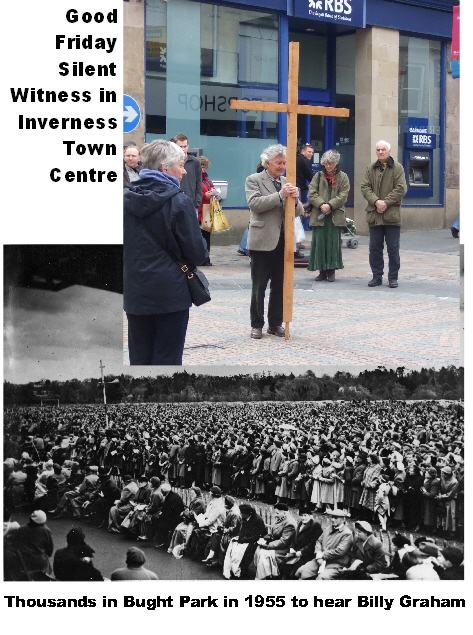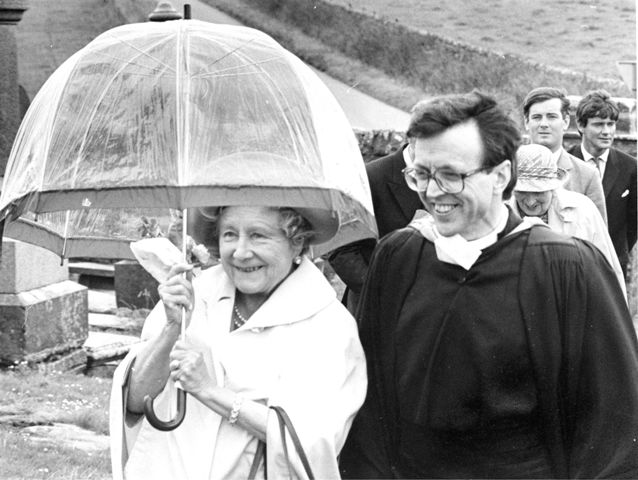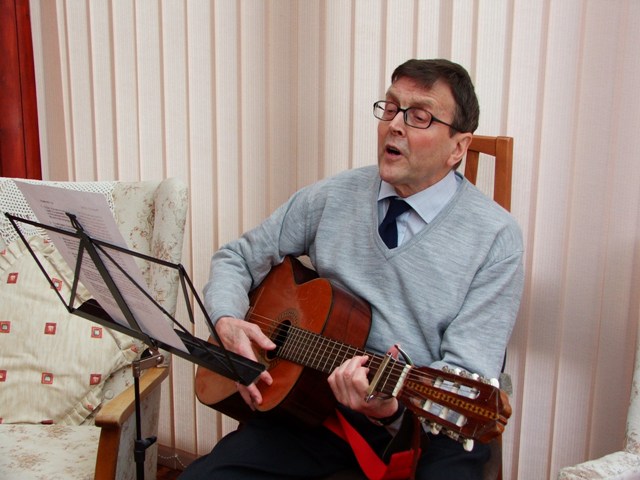Revivals in the Highlands: Part 4
God worked through the great and the lowly to bring salvation to lost souls. Alex Muir concludes his overview of revivals in the North of Scotland from the mid-19th century onwards.
The concluding part of a 4-part series on Revivals in the North of Scotland
Part 1: Part 2: Part 3
 A CORRESPONDENT, writing to the 'Scottish Guardian' said that the 1859 – 61 movement in Inverness began with a visit of Brownlow North. A feature of this awakening was the involvement of lay evangelists who were mightily used by God. They were drawn from all classes. There was Robert Cunningham, a converted prize fighter once known as the Briggate Butcher. A CORRESPONDENT, writing to the 'Scottish Guardian' said that the 1859 – 61 movement in Inverness began with a visit of Brownlow North. A feature of this awakening was the involvement of lay evangelists who were mightily used by God. They were drawn from all classes. There was Robert Cunningham, a converted prize fighter once known as the Briggate Butcher.
Meanwhile James Turner of Peterhead was a fish-curer to trade. He was a small man with little education or eloquence: he also had a squint. And if these drawbacks weren't enough, he was also a dying from tuberculosis. However he was a man of prayer and, during the last two years of his life, he led thousands of the fisher folk to the Lord Jesus Christ.
His dying words were: ‘Christ is all. Not by might, nor by power...’
At the other end of the scale was a man like Brownlow North who was an aristocrat. After living a reckless and sinful life, his life was turned around by the Gospel. The godless rebel became a devoted servant of Jesus and an outstanding preacher. As a result of his work in Inverness a number of young Christian men were deeply moved. They began to hold daily morning prayer meetings in destitute parts of the town and, in May, 1859, they were able to establish a YMCA. By September 1859, there were reports of a considerable awakening... ‘without noise or extravagance’.
Lives and communities changed
Like all great revivals, there was a moral impact on the community. Some boys who had been a ‘nuisance in their neighbourhood' had become little missionaries, giving out Gospel tracts in the town. Almost every evening in the week, in different locations, open-air services were held and, in Muirtown, a large wooden building was converted into a preaching station. We're told that large devotional assemblies gathered in the Free High and Free East Churches which were open every night. One minister alone said that he had spoken to one hundred and fifty inquirers. There was also a change in the appearance of the streets, especially on the Sabbath when there was hardly a drunkard to be seen.
In March and April of 1860, the work received a further impetus by the visit of some Buckie fishermen. They had come, as they normally did at this time, to collect mussels for bait at the mouth of the river, and they were known in the town. But they too had been touched by the revival, and their lifestyle was so changed by the grace of God that someone remarked: ‘Except from outward appearance one has difficulty in recognising the same men who have visited us for so many years past.’ They were now fishing for men. Their bait was their testimonies, and they told the people about the good things the Lord had done for them. As it was in the early church, the people took note that these men had been with Jesus (Acts 4:13), and , every day, morning and evening, crowds flocked to their meetings..
Moody and Sankey (1874); a transatlantic input
This brings us to 1874 and the next national awakening. This work of God took place during the Scottish mission of the American evangelists, D. L. Moody and Ira D. Sankey. Inverness was on their itinerary. On Tuesday, 7th July at 8.00 p. m., Moody preached his first sermon, in the Free High Church telling the people that they hadn't come to promote themselves. The purpose of their visit was that the Son of God might be glorified. He took his subject from Romans 3:22 - 23: ‘There is no difference.. all have sinned and come short of the glory of God.’ The building was crowded and more than half the congregation waited behind for the prayer meeting afterwards. Those who were anxious about their souls were asked to go to the Session Room where a number found faith in Christ. The interest in the town became so great that the Music Hall was opened for a meeting the following morning. Nearly a thousand people came to hear the Gospel. In the afternoon, Moody was back in the Free High. When he got to the pulpit to do a Bible study on the blood of Christ, he found that the church was filled to capacity. In the evening, the church was again packed. This time he preached from one of his favourite passages, John 3:1-16. Here is how an eyewitness described the occasion:
‘Mr. Moody spoke with a power that was evidently given him from above. His forcible statements of Divine truth, the pointedness and melting earnestness of his appeals, backed by illustrations that touched every heart and brought it into contact with the reality of Divine things, produced the greatest impression upon the audience. But it was a kind in which the man was forgotten and the solemnising influence of the Holy Spirit, bringing the truth home to the consciences... was visible.’
There were forty enquirers but these were only a small proportion of those whose hearts God had touched. On Thursday at one o'clock, the Music Hall was again filled, this time for a prayer meeting at which prayer requests were made for the conversion of family members. At three o'clock, Moody gave another Bible Reading. In the evening, a vast audience attended an open air service on the Castle Hill. But the day wasn't yet over. A further meeting was held in the Free High and there were many conversions. The Sunday services continued all day.
After church there was another open air meeting, this time in the New Park. The crowd which came numbered between four and five thousand people. Alexander MacRae gives this description. The evening was calm and pleasant and the vast audience heard every word with ease. The meeting was impressive. At the inquirers meeting in the Free High afterwards, many entered into the light and peace of faith.
Frazer of Tain ( 1898)
At the close of the century, a quite different preacher arrived in Inverness. Rev. Alexander Chisholm MacDonald, of Queen Street Church, had to go away on an extended overseas visit and an assistant was appointed for a period of six months, from March until October, 1898. His name was Alexander Fraser. In later years, owing to his outstanding ministry in Tain, he became known throughout Scotland as Frazer of Tain.
Two years before he went to Queen Street, he had witnessed an amazing outpouring of the Spirit in Campbeltown. The experience was to shape and colour his whole subsequent ministry. His preaching in Queen Street soon drew large congregations. Frazer's biographer, J. T. Carson, writes this :
‘The impressions made by the ordinary Sunday and week-day services were so powerful that anxious souls were to be found making their way to his lodgings, asking, “the way of salvation and light?” Night after night for a fortnight, the work went on in volume and intensity, to such an extent that it became necessary to use the Music Hall... The converts were mainly young men and women and some were visitors on holiday in Inverness. The fruits of that work of grace were very real and striking.’
Revivals into the 20th century
Revivals continued into the 20th century. What is called the Welsh Revival of 1904-6, wasn't confined to Wales. Throughout the whole of Britain and in lands across the sea, there were many remarkable outpourings of the Holy Spirit. In the spring of 1905, the evangelist, W. F. Stewart came with some friends to conduct a mission in Inverness. But it developed into much more than that. Reports of blessing in the most-northerly county of Caithness, and in Wales, stimulated prayer and increased a spirit of expectancy among God's people. Again there was a great gathering in the Music Hall. In front of an audience of 1400, Frazer of Tain gave an inspiring account of the revival in Wales and the interest was deepened and extended. Alexander MacRae tells what happened:
‘From the commencement of the mission there were many evident tokens of the Spirit's presence and power and a most gracious revival of religion was experienced. Most of the ministers of all denominations in the town co-operated in the work. For five weeks, congregations of from 1000 to 2000 persons gathered every night to hear the Gospel... in speech and song... The great majority of those attending were young men and women’.
Seedtime and harvest
Nearly three centuries earlier, God had told Robert Bruce that he would sow a seed in Inverness which would not be rooted out for many ages. God was continuing to fulfil His promise in a new century. The east coast revival of 1921-22 also touched Inverness and the streets were black with people going to church. In the 1950's, God also moved in the town but, by the 60's, a great spiritual decline had set in throughout the land. There were minor movements in the 70's and 80's but they failed to arrest the decline. Now places that were once like the garden of the Lord have reverted to wilderness.
Times have certainly changed but the good news is that God hasn't: ‘I am the Lord, He says, I change not’ (Mal. 3:6). Even if we don't have revival, we still have His promise that in the last days He will pour out His Spirit. One of the favourite Psalms of the 1859 revival in Aberdeenshire was Psalm 68. In [the metrical] verse eight are these words: ‘Then at God's presence shook the earth; then drops from Heaven fell; This Sinai shook before the Lord, The God of Israel’. Referring to that verse, and to these days, the evangelist, Duncan Matheson, used to say: ‘We had a rich Master and the drops were as big as half-crowns on the pavement. The showers of blessing just bucketed down’.
And that's what we need for the spiritual desert of our time. As the farmer look upwards to the clouds for rain, so we must look upwards to God, and pray with all our hearts for the heavenly showers. Only these can truly refresh God's thirsty people. Only these can give us a harvest of souls for the future. O for the faith to sing with the hymn writer: ‘There shall be showers of blessing; Precious reviving again; Over the hills and the valleys; Sound of abundance of rain’.
 Rev. Alex Muir received his Homecall to Glory on 15 March 2010 just as this last article in the series was published. Rev. Alex Muir received his Homecall to Glory on 15 March 2010 just as this last article in the series was published.
A tribute will be published (d.v.) following the Service of Remembrance and Thanksgiving scheduled for -
Tuesday, 23 March, 2010 at 11.45am in Dalneigh Church of Scotland, Inverness
Alex and the Queen Mother
Rev. Alex Muir 1940 - 2010
 The near-future article will (d.v.) provide a facility for site visitors to leave their condolences and reflections. The near-future article will (d.v.) provide a facility for site visitors to leave their condolences and reflections. The Editor of Christians Together made speech, video and music recordings with Alex in the course of 2009. These recordings Alex singing spiritual songs. These will be placed in this site in days to come (d.v.), but meanwhile Alex can be heard here to Sing the Glories of the Lamb. |